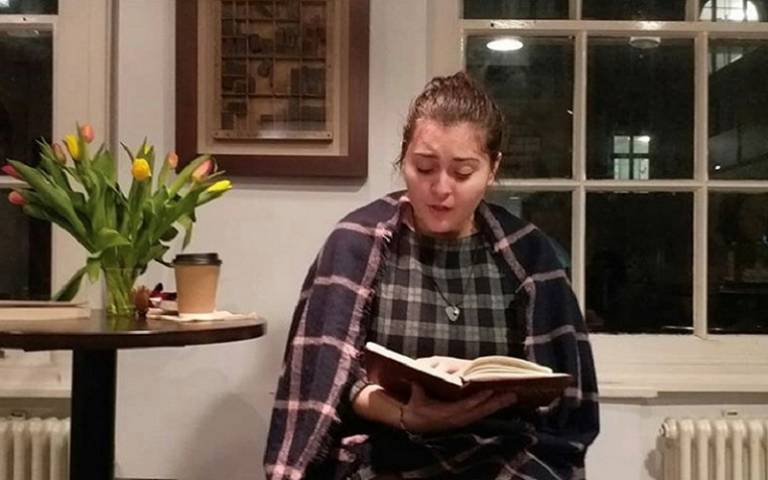Celebrating BAME and closing the BAME Awarding Gap by showcasing the diversity of language
Floarea Iacobescu, (BA Linguistics (International Programme), 3rd Year), shares her experience as a Student Curriculum Partner working to make module curricula more diverse and inclusive.

8 June 2021
A new journey
Last year I embarked on a new journey – I decided to be a Student Curriculum Partner and help review modules in my department, the department of Linguistics. Anyone that knows me also knows that I hold Linguistics very dear to my heart, since it is the perfect combination between science and language, and that puts together my favourite things in the world to study. Aside from that, having been a girl scout and now a scout leader has taught me to actively think about the marks I leave behind, and to seek to have a positive impact on the world around me. Given this, I don’t think it should be a surprise to anyone that from the very beginning, I viewed this project as very important because it meant having a direct contribution to help reduce the BAME awarding gap by making suggestions and offering feedback on the curriculum to make modules more diverse and inclusive.
How it worked
The job itself was very straightforward: together with another fellow Linguistics student, I was to review two modules that we both took in our earlier years in our Linguistics studies, then present our findings to a board, and finally pass on the specific feedback to staff members in the Linguistics department. To be more precise, we were to assess how diversity and inclusivity of minor groups were already incorporated into the curriculum, and address these issues accordingly by making suggestions of improvements in this area. We also reviewed the general outline and assessment of the two modules, making sure the assessment in particular is diverse and can cover the needs of all students, given how ranged they are due to the different backgrounds the students on our course come from, or any disabilities they might have.
The meetings with the board in charge of this project went very smoothly, and everyone involved was more than keen to hear what we had to say. To me, it felt empowering to have the support of the staff members, which resulted in presenting all my and my partner’s ideas with more confidence and a stronger belief that change can be made indeed.
Impact and outcomes
In terms of the impact of our work in this project, I think the outcomes can be seen from two different perspectives. Firstly, I believe that the learning experience of students can highly improve if the curriculum, especially in linguistics, mirrors their background and culture since they come from all corners of the world. I think once they are able to identify themselves and their culture in their actual academic studies, they would be more interested in the subject, will feel included and accounted for, and will be able to make the best use of their own diverse heritage to shape their studies. And that is exactly what we aimed for with the suggestions we made: for students to be more dedicated to their studies because they see themselves reflected in them, by being able to explore their own experiences.
Secondly, I expect to see a change in how staff members approach the curriculum. A narrow-minded approach should soon become something of the past, and be replaced by a broader perspective that takes diversity in consideration, especially since linguistics is a degree that truly gives you the opportunity to celebrate and showcase the diversity of language from all over the world.
 Close
Close

